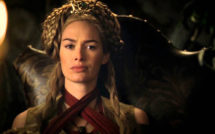
I am a woman who does not want to have children. I describe myself as “childfree,” a concise term that shows I have made an active choice not to reproduce–a choice I feel good about. More and more, women seem to be making this empowering choice not to become mothers despite the constant societal push to reproduce. Some make the choice later in life, after years of weighing the myriad pros and cons of having children.
For me, it was a bit simpler. I’ve known for almost as long as I can remember that I didn’t want to become a mother. I was about eight years old when I made the firm declaration to friends and family: I would never have kids. At the time, my reasons were moral and environmental. Morally, I felt that, with no ability to anticipate the depth or severity of the suffering my child might experience, I could not in good faith bring a new life into the world. Environmentally, I simply felt that humans were destroying the environment with overpopulation, and I did not want to contribute to the damage.
Other reasons have been more concrete. For one, I am turned off (to put it mildly) by the idea of pregnancy. I can hardly imagine something more terrifying happening to my body. This, of course, does not rule out adoption, but I have come to understand that adoption is not right for me either. I am one of those oft-maligned women who just don’t like kids all that much. I have never found babies cute, and I much prefer the company of adults to children.
As a woman who has spent her entire life regularly declaring her decision not to have children, it’s been fascinating to witness the evolution of responses. For my entire childhood, teen years, and throughout my twenties, the response was almost unanimously: “You’ll change your mind.” Now, that may seem like the obvious or expected response. But why should it be? When a child says, “I want to be a firefighter” or a college student says, “I’ve decided to become a surgeon,” the response is not automatically “You’ll change your mind.” Why is it that the default response to a young woman stating her desire not to have children is to flat-out declare that she does not know her own mind or heart?
Now that I’m 34 years old, I’ve noticed the response has changed. People now respect my decision and treat it as real and final. This, of course, feels wonderful and empowering, but I fear it’s only because they see that I’m nearing the end of my childbearing years. They figure that if I don’t change my mind in a year or so, I won’t be able to have children anyway.
My hope, however, is that the narrative is changing. Famous, well-respected women like Gloria Steinem, Oprah Winfrey, Chelsea Handler, and Helen Mirren have publicly commented on their choice not to become mothers. Their comments have helped move society towards accepting this decision.
Whether or not you want children, you can help change the way in which it’s discussed. If you do want kids, explore your choice. Talk about it with people. Let’s not allow it to be the norm or default that all women want children. If someone says to you “Of course I want kids,” respect their choice, but ask them what personal beliefs and life experiences led to that decision. Why should it be only those who don’t want children who are questioned?
Having a child is a major commitment and long-term responsibility. And thanks to modern science, it IS a choice. Let’s work to empower women to understand whether it’s a choice that works for them.
Photo by Mariona Campmany




